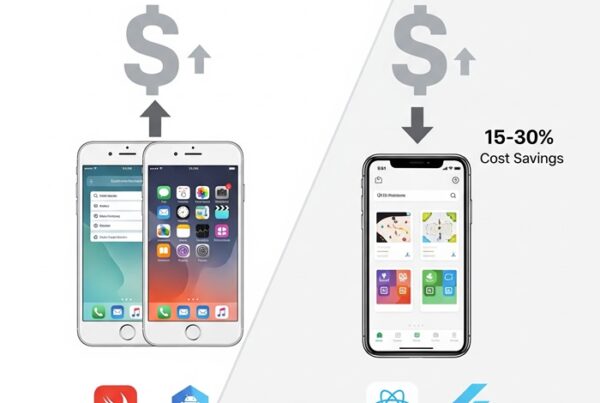In today’s rapidly evolving financial landscape, digital wallets have emerged as one of the most transformative innovations. Specifically, cryptocurrency wallet apps are playing a crucial role in reshaping the future of finance. These apps have already started to change the way people store, manage, and transfer their assets, while also breaking down barriers to traditional banking. But what does the future hold for cryptocurrency wallet apps? How are they revolutionizing finance? Let’s explore everything you need to know about these game-changing tools and their impact on the world of finance.
What Are Cryptocurrency Wallet Apps?
Before diving into the future, let’s first understand what cryptocurrency wallet apps are. These are digital applications that allow users to store, send, and receive cryptocurrencies like Bitcoin, Ethereum, and others. A cryptocurrency wallet essentially acts as a digital storage space where users can safely keep their assets without needing to rely on centralized institutions like banks.
These apps can be divided into two main types:
- Hot Wallets: These wallets are connected to the internet and allow quick, easy transactions. They are perfect for users who frequently trade or transact in cryptocurrency but may be slightly more vulnerable to online threats.
- Cold Wallets: These are offline wallets, such as hardware wallets, that store cryptocurrencies in a secure, disconnected environment. While they are less convenient for frequent transactions, they offer greater protection against cyber threats.
Now that we have a clear understanding of what cryptocurrency wallets are, let’s take a closer look at how they are revolutionizing the finance world.
1. Decentralization and Financial Inclusion
One of the most powerful ways cryptocurrency wallet apps are transforming finance is through decentralization. Traditionally, finance has been controlled by centralized institutions, such as banks and governments. However, cryptocurrency wallet apps allow individuals to control their own assets directly without relying on third-party institutions. This decentralized model opens up opportunities for financial inclusion on a global scale.
People in underbanked or unbanked regions, where traditional banking services are limited, can now access financial services with just a smartphone and internet connection. This shift is crucial in bridging the financial gap between different parts of the world and ensuring that everyone has the ability to participate in the global economy.
2. Enhanced Security and Privacy
In an era of rising cyber threats, security is a top priority for anyone managing digital assets. Cryptocurrency wallet apps are designed with advanced security features, offering a level of protection that traditional financial systems cannot match.
Most wallet apps use encryption techniques, two-factor authentication (2FA), and biometric security (like fingerprint recognition) to ensure that users’ funds remain safe. With private keys stored directly on the user’s device, it’s incredibly difficult for hackers to access the assets without physical access to the wallet.
Furthermore, cryptocurrency wallets provide an extra layer of privacy by allowing anonymous transactions. Unlike traditional banking systems, where your identity is tied to every transaction, cryptocurrency wallet apps allow users to make transactions without revealing their personal information, making them an attractive option for those seeking enhanced privacy.
3. Ease of Use and Accessibility
Cryptocurrency wallet apps have significantly improved in terms of user experience and accessibility over the past few years. Today’s apps are designed to be intuitive, even for beginners, with simple interfaces and easy-to-understand features. Users can seamlessly manage their cryptocurrency holdings, track prices, make transfers, and access other financial services with just a few taps.
This ease of use is one of the key drivers behind the growth of cryptocurrency adoption, as more people are now able to understand and utilize digital assets without needing deep technical knowledge. Additionally, as mobile wallets continue to grow in popularity, accessing digital assets is easier than ever, putting financial control directly in the hands of the users.
4. Cross-Border Transactions and Lower Fees
One of the most exciting aspects of cryptocurrency wallet apps is their ability to facilitate cross-border transactions at lower fees compared to traditional financial services. Sending money across borders using a traditional bank or money transfer service can be expensive, especially for smaller amounts, due to high transaction fees and exchange rate costs.
Cryptocurrency wallet apps, on the other hand, offer a cost-effective alternative. They enable peer-to-peer transactions across the globe without intermediaries, meaning lower fees and faster processing times. This is especially beneficial for individuals sending remittances to family members abroad, as it allows them to send money instantly and at a fraction of the cost.
5. Integration with Decentralized Finance (DeFi)
The rise of decentralized finance (DeFi) has brought about a new era of financial services that are built on blockchain technology and run without centralized intermediaries like banks. Cryptocurrency wallet apps are at the forefront of this shift, providing users with access to a wide range of DeFi products and services.
Users can now lend, borrow, trade, and earn interest on their crypto assets through integrated DeFi protocols directly within their wallet apps. This decentralized approach to finance offers greater flexibility, transparency, and control over financial activities. As the DeFi ecosystem continues to expand, cryptocurrency wallet apps will play a central role in connecting users to these innovative services.
6. Tokenization and Asset Management
Another exciting development in cryptocurrency wallet apps is the tokenization of real-world assets. Tokenization refers to the process of creating digital tokens that represent real-world assets such as real estate, stocks, or even art. Cryptocurrency wallet apps are increasingly allowing users to store and manage these tokenized assets, providing new ways to invest and diversify portfolios.
For instance, a user might hold a token that represents a fraction of a piece of property or shares in a company, all within their wallet app. This opens up new avenues for investment and asset management, especially for individuals who may not have access to traditional financial markets.
7. Interoperability with Other Blockchains
As the cryptocurrency space continues to grow, interoperability between different blockchain networks is becoming increasingly important. Users now expect to move assets seamlessly across different blockchain platforms without encountering barriers. Cryptocurrency wallet apps are evolving to meet this demand by offering cross-chain compatibility, allowing users to interact with various blockchain ecosystems.
This development ensures that cryptocurrencies, tokens, and DeFi protocols from different blockchains can work together harmoniously, offering users greater flexibility and access to a wide range of digital assets.
8. The Rise of Stablecoins
Stablecoins—cryptocurrencies pegged to stable assets like the US dollar—are gaining popularity due to their stability in value. These digital currencies have become increasingly attractive for everyday transactions and savings. Cryptocurrency wallet apps are integrating stablecoins to help users protect their investments from the volatility that often affects traditional cryptocurrencies like Bitcoin.
Stablecoins are expected to play a pivotal role in the future of digital wallets, as they offer the best of both worlds: the benefits of cryptocurrency without the extreme price fluctuations.
Conclusion: The Future is Bright for Cryptocurrency Wallet Apps
The future of cryptocurrency wallet apps is incredibly bright, with continued advancements in security, usability, and functionality. These apps are not only transforming the way people interact with their digital assets but also reshaping the financial industry as a whole. From enabling financial inclusion to supporting decentralized finance and tokenization, cryptocurrency wallet apps are setting the stage for a new era of digital finance.
As the adoption of cryptocurrencies continues to grow, so too will the capabilities of cryptocurrency wallet apps. Whether you’re an investor, a tech enthusiast, or someone simply curious about the future of finance, now is the perfect time to explore the potential of cryptocurrency wallet apps and see firsthand how they are revolutionizing the world of finance.








